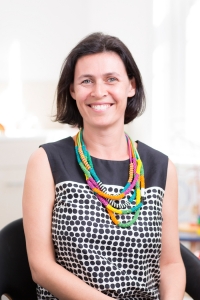During the last two years, extended lockdowns and isolation due to COVID-19 has been hard for many parents for so many different reasons.
As the Pandemic stretches on, parents, researchers and those of us who work with children ask ourselves many questions:
- Are Infants born during the pandemic at greater risk of behavioural and neurodevelopmental problems?
- Will there be a long-lasting effect?
- How has isolation and limited social/human interactions affected children?
- If I am pregnant and stressed during the pandemic, will this have a long-term effect on my child?
- Does mask wearing have an impact on children’s development?
These are all excellent questions and very real concerns
The answer unfortunately to most is that we do not know yet!
It is too soon for us to have data about long-term developmental effects. There are many researchers around the world looking at the possible long-term impacts on a wide range of areas of child development: including physical, emotional and social development as well as parent-child and child-child relationships.
What do we know so far?
- Some babies during the past two years might have experienced developmental delays and not received assessment, support and intervention as early as we would like.
- Regular Maternal Child Health Nurse check-ups were put on hold in some states in Australia due to COVID-19 and this meant that monitoring and early detection of developmental and growth concerns by health professionals may have been missed. Parents have also been worried about taking their children to health care professionals and hospitals as they were fearful of contracting COVID-19.
- The reason this is important is that early identification of developmental problems allows for early childhood interventions. Providing support and services for infants and young children with early developmental impairments and their families can alter the child’s longer term developmental trajectory. Intervention depends on your child’s specific developmental issues but some therapies suggested may include physiotherapy, occupational therapy, speech therapy, psychology.
- On the flip side, some infants might have thrived during the pandemic- for example, if their parents were at home for extended periods and infants had more opportunities to interact with their parents and siblings.
- As with many aspects of health – the gap in health outcomes between rich and poor is substantial and has widened due to the pandemic. The reasons for this are varied and complex.
- Researchers are also looking into whether the pandemic could be affecting children’s development before they are born. They are looking into whether prenatal stress and mental health issues in pregnancy, such as anxiety and depression, effects brain development. We do not have this data yet.
- There has also been a delay in identifying children with poor growth and nutritional deficiencies as many children did not receive regular checks of weight, length and head size which is usually done through Maternal Child Health System- poor growth and nutrition can also have an impact on many aspects of children’s development.
- Parental stress/mental health can have an impact on infants’ social-emotional development and we do know that mental health issues, such as anxiety and depression, have risen significantly during the last 2 years in many parts of Australia
The Good news
- Many children falling behind in their development will catch up without long-lasting effects.
- Infants and children are incredibly resilient and adaptive.
- Infants’ brains are elastic and plastic- even if there have been effects seen during the pandemic, there is still time to steer them back on course and change the outcomes.
- Early data suggests wearing masks does not have a significant impact on babies’ social/emotional development – mask wearing only blocks one channel of communication but parents interact with their babies in so many different ways
What can parents do?
- play and talk with your young child regularly
- read to your child regularly
- give them opportunities to play with other children (where safe)
- let children explore and play freely (safely of course) both indoors and outdoors to develop their fine and gross motor skills
- take your child to a maternal child health nurse (MCHN) or GP for a physical and development check-up if you have missed appointments or have concerns
- take your child to a paediatrician if you or your MCHN are concerned about their development
- look after your own physical and mental health
- access any supports available to you after birth- social, emotional, financial
- if you are pregnant, reach out to your partner and friends to help support you if you are feeling stressed/anxious- also reach out to your GP or professionals if you are worried about your mental.
Living through the COVID Pandemic has been challenging for many of us, especially for parents.
Please remember: babies and children are incredibly resilient and their brains are constantly developing and changing. Babies and children thrive on love and affection, as do many of us. Please look after yourselves during these challenging times.
Lexi

Dr Lexi Frydenberg is a General Paediatrician at The Royal Children’s Hospital Melbourne and Co-director and clinician at Victorian Children’s Clinic in Malvern, Victoria.
She is also passionate about sharing quality, evidence-based information with families.
She is co-producer & co-host of RCH Kids Health Information Podcast, a podcast for parents about common child health concerns. https://www.rch.org.au/kidsinfo/Podcast/
Instagram: @drlexifry









